Hidden Sugar, How It Affects Your Body, and What to Do About It
Sugar is hidden is the least suspected places! Here’s your guide to hidden sugar, how it affects your body, and what to do about it.
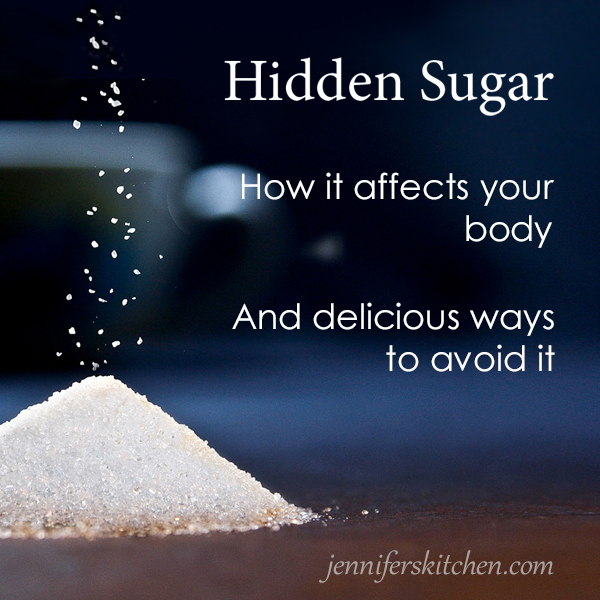
In the 1800’s, the amount of refined sugar consumed by the average American was just under 1 1/2 teaspoons a day. But now, the average American eats over 22 teaspoons of sugar per day.
Interestingly, nobody thinks they are eating that much.
Hidden Sugar
One reason for this is that refined sugar is hidden in over 70% of packaged foods. And that added sugar can add up pretty fast!
For example, most brands of yogurt contain 6 teaspoons of sugar in one tiny serving. That’s more sugar than we should be eating in an entire day! And some brands of yogurt are loaded with up to 10 teaspoons of sugar.
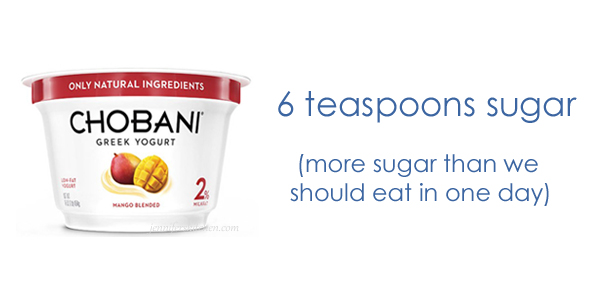
Another example: a bowl of granola has just as much sugar per serving as a couple of cookies.
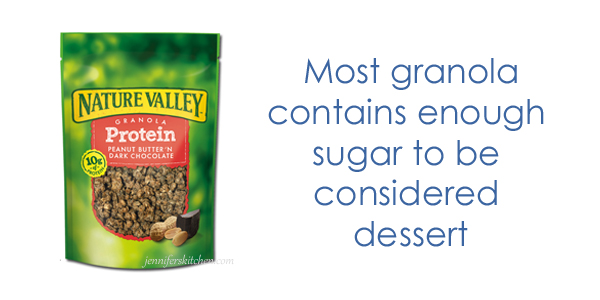
We find added sweeteners in everything from pasta sauce to salad dressings to peanut butter.
So that’s part of the problem. The other part …
We Just Eat Too Much Sugar
We eat too many sweets. Cookies, ice cream, doughnuts, soft drinks, etc. We just eat too much of them.
So, why is this bad?
Sugar and Health
Weight Gain
Well, eating too many of these empty calories has numerous negative effects on our health, the most obvious being weight gain. In addition to the empty calories, research shows that sugar (and other sweeteners such as honey, maple syrup, and stevia) could very possibly be the on-switch that activates compulsive eating.
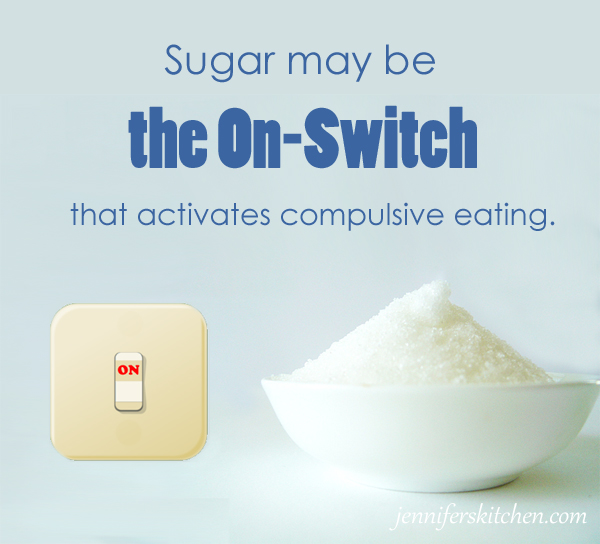
Other Health Issues
Sugar (and other sweeteners) also contribute to a number of other health issues including:
- insulin resistance
- high blood pressure
- varicose veins
- unhealthy cholesterol levels
- cancer
- hormonal imbalance
- gallstones and kidney stones
- low calcium levels
- ulcerative colitis
- gout
- irritable bowel syndrome
- heart disease
Sugar and Your Brain
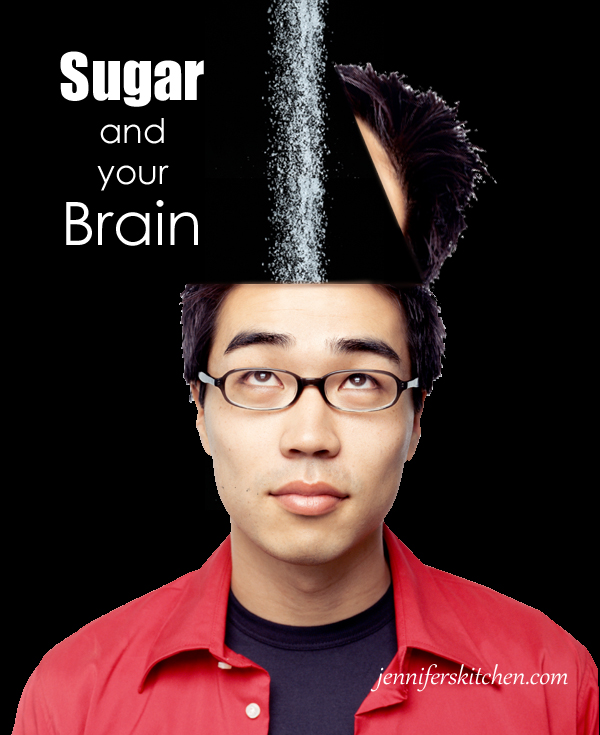
Research also shows that eating too many refined foods (especially sugar and other sweeteners) can cause impaired cognitive function and reduce proteins that are necessary for memory and responsiveness.
The consumption of refined foods is also linked to depression.
Is All Sugar Bad?
Sometimes the sugar conversation can get confusing because we use the word “sugar” to describe the granulated, white (or tan-colored) stuff that we get from sugar cane or sugar beets, and we also use the word “sugar” to describe the naturally-occurring sweetness we find in whole foods, like fruit.
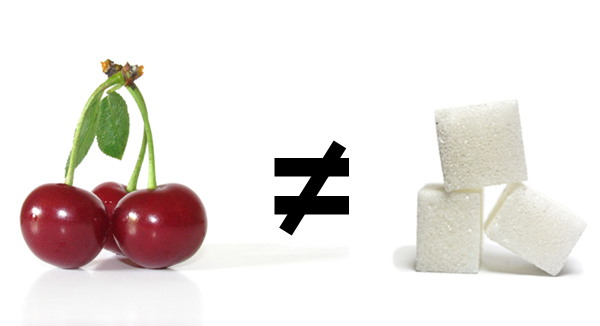
Fruits, whole grains, beans, nuts, and even vegetables all contain natural sugars that are very beneficial for our health. Because they come naturally-packaged with an abundance of fiber, phytochemicals, vitamins, and minerals our body uses that sugar to nourish us and prevent disease.
Sugar naturally occurring in whole foods is good sugar.
Sugar that is extracted from whole foods, like sugar cane or sugar beets, is the sugar that causes health problems. Because it is removed from the whole food it originally came from, it causes a spike in blood sugar and contributes to all the health issues mentioned above.
Is unrefined sugar healthy?
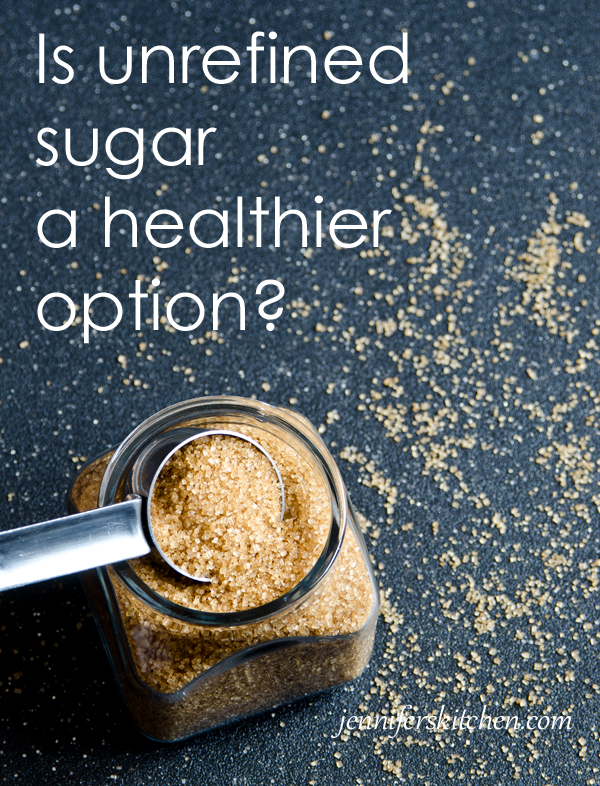
What about unrefined sugar? I get this question quite often, which shows us what an incredible job the media and advertisers have done at deceiving us.
Myth:
Unrefined sugar is healthy.
Fact:
There is no such thing as unrefined sugar.
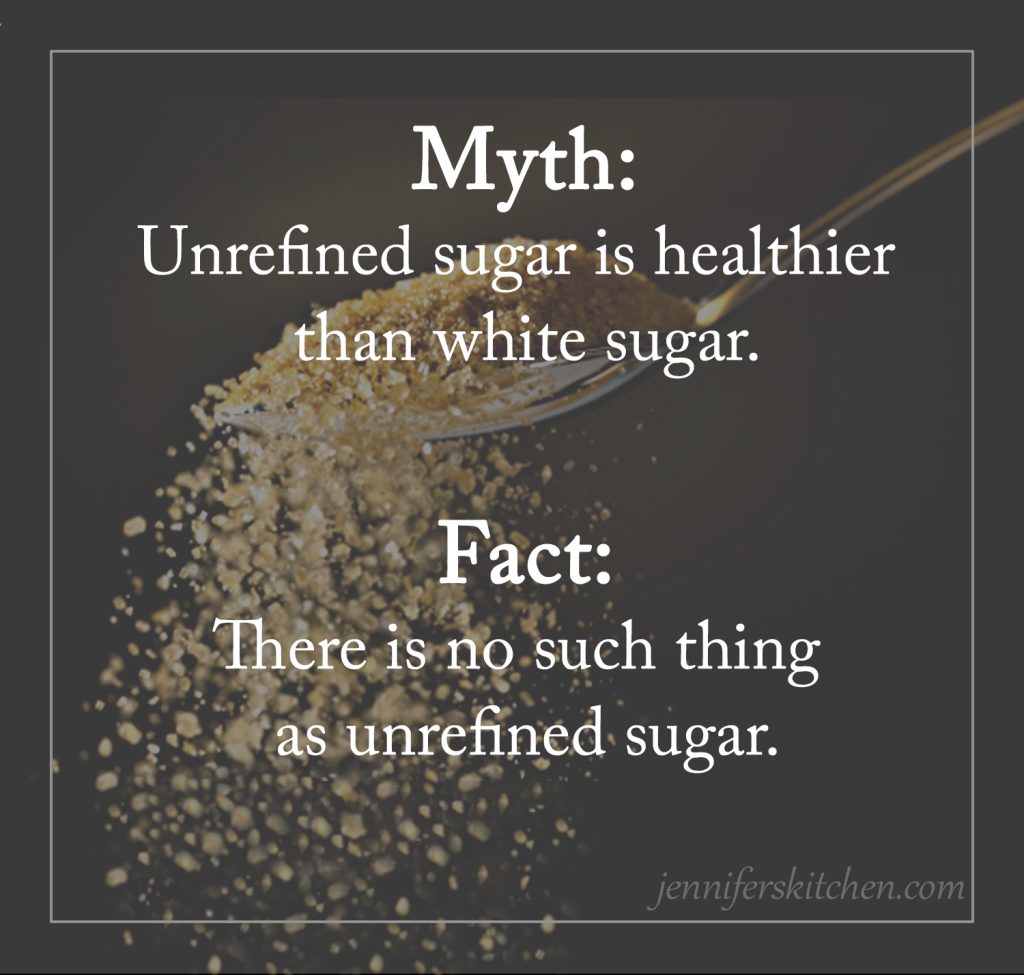
If you’ve ever eaten sugar cane, you know it is nothing like that sweet, granulated stuff you stir into your cookie dough. How do you take sugar cane and make it into sweet granules? It has to be processed – or refined.
All sugar is refined to some degree (even if some companies call their sugar “unrefined”).
While some types of sugar (such as sucanat and turbinado sugar) may be a bit less refined, no matter how brown-colored that sugar is, it is still taken out of its natural package of nutrients and your body deals with it like it is refined – because it is.
Are sugar-free products healthy?
Many of the products that boast “sugar-free” are probably worse than their sugar-containing counterparts because they contain sugar-substitutes that come with a long list of negative side effects.
You can find out more about sugar-substitutes here.
5 Ways to Eat Less Sugar
Here are 5 keys to avoiding these added, refined sugars:

1. Minimize the use of packaged food.
Manufacturers sneak sugar into their foods in a number of ways.
2. Know the names.
Ingredient labels can be deceptive if you don’t know what to look for. You may not see the word “sugar” at all in a list of ingredients, and yet the food may be loaded with sugar. This is because there are sooo many different types of sweeteners used.
3. Check out my delicious sugar-free recipes.
Cooking your own food means you know what is in it. And you can incorporate more whole foods, like fruits, vegetables, whole grains, legumes, nuts, and seeds. Try out some of my yummy sugar-free recipes.
4. Join my online Weight Loss Program
Using the delicious recipes and handy tips found in my easy-to-follow program, you’ll find yourself eating less sugar without even knowing it.
5. Make healthy switches
It’s helpful to know which foods contain too much added sugar. But what’s really helpful is to know what to eat instead! Here are some healthy switches.
Instead of refined sugar, try date sugar. Its completely natural and unrefined!
Try these healthy pancake and waffle toppings instead of maple syrup.
Ditch the store-bought energy bites and try these healthy homemade, sugar-free energy bites.
Trade in your sugary breakfast cereal for this delicious Sugar-Free Apple Granola or these yummy sugar-free Banana Date Breakfast Cookies.
Sugar-Free Recipes
Get some more yummy, sugar-free recipes! Enjoy!
You my also like:
Before you go . . .
Did you know that you can eat all this delicious food AND lose weight? You can!
No calorie counting. No portion sizes.
Join my online weight loss program today!

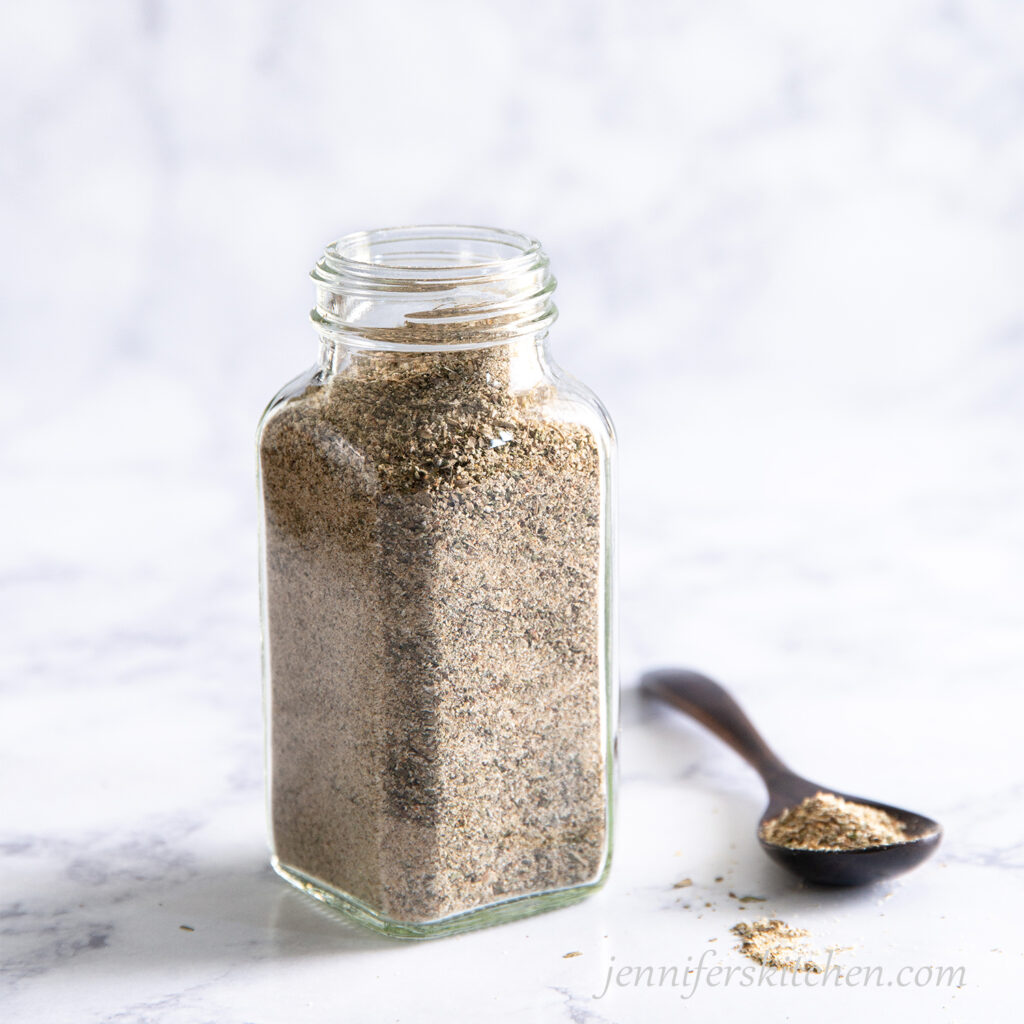


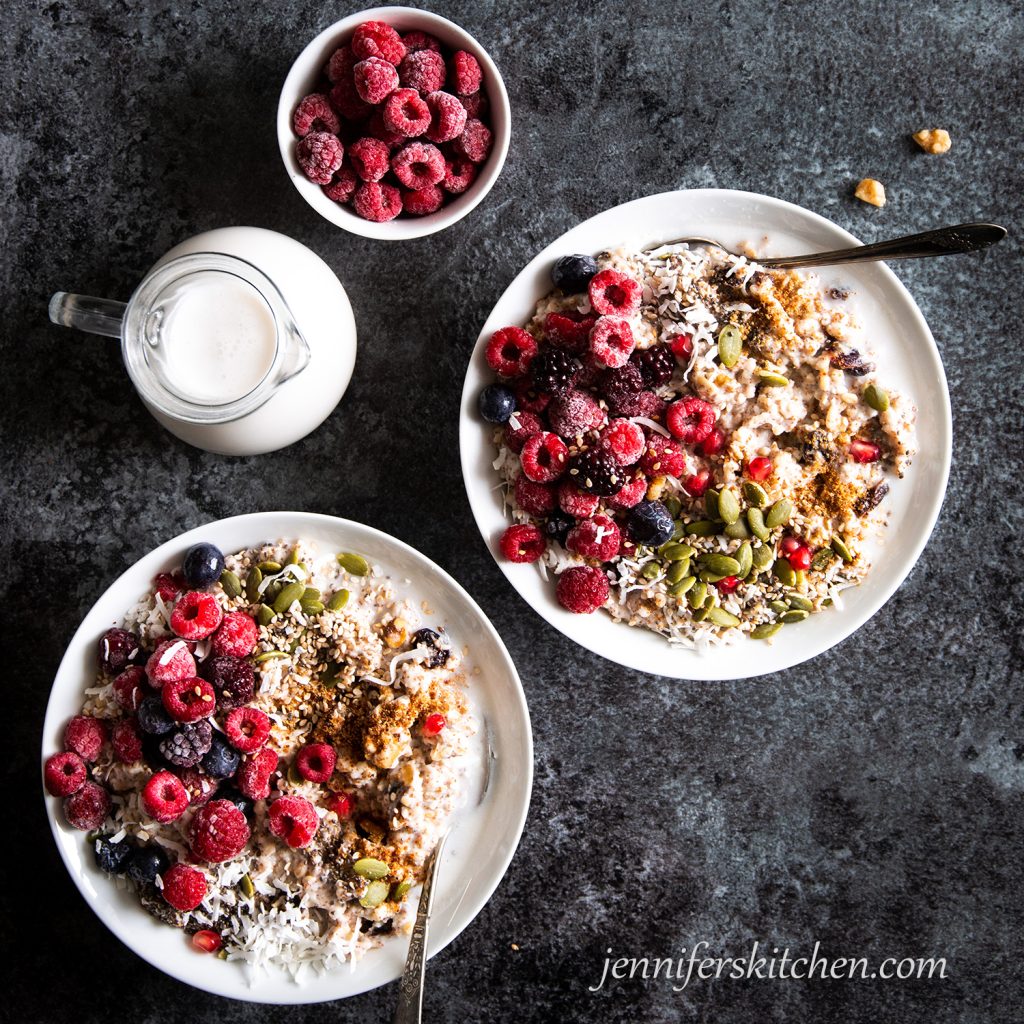
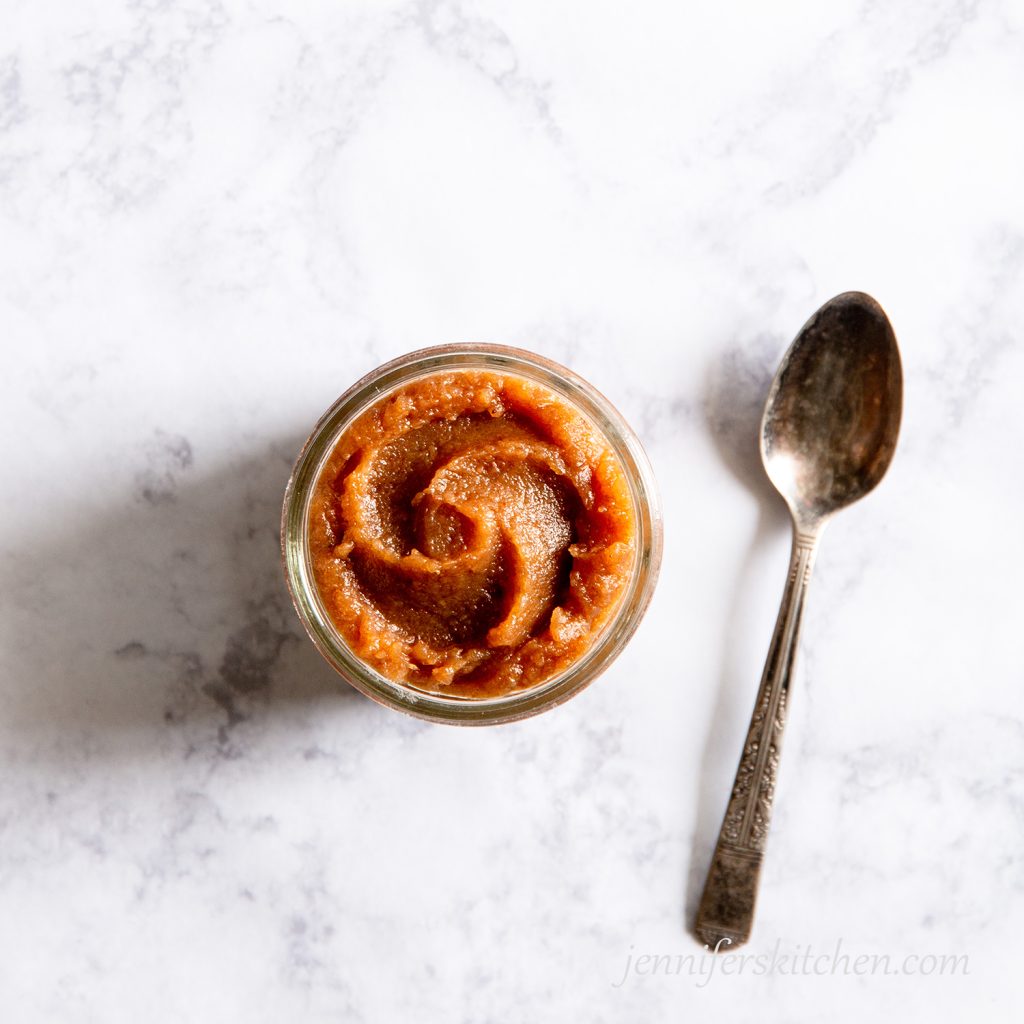


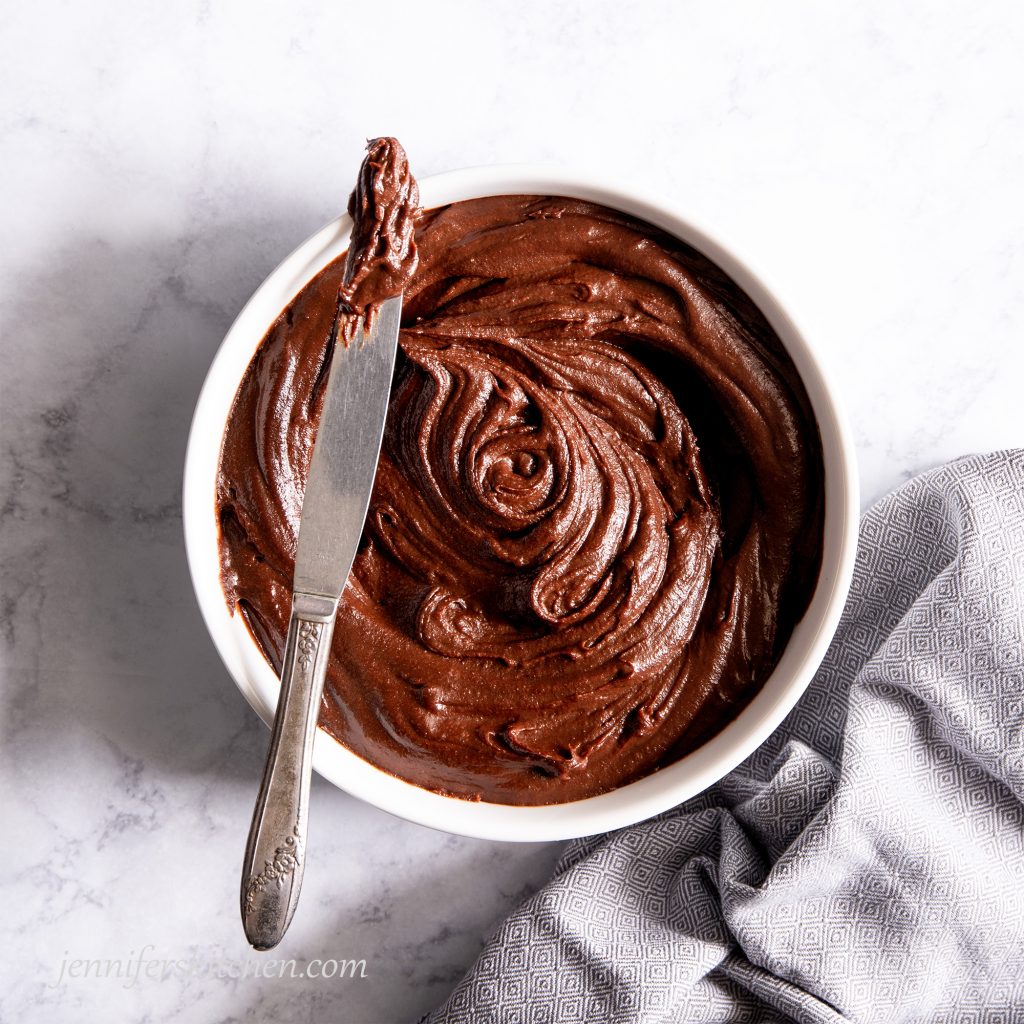
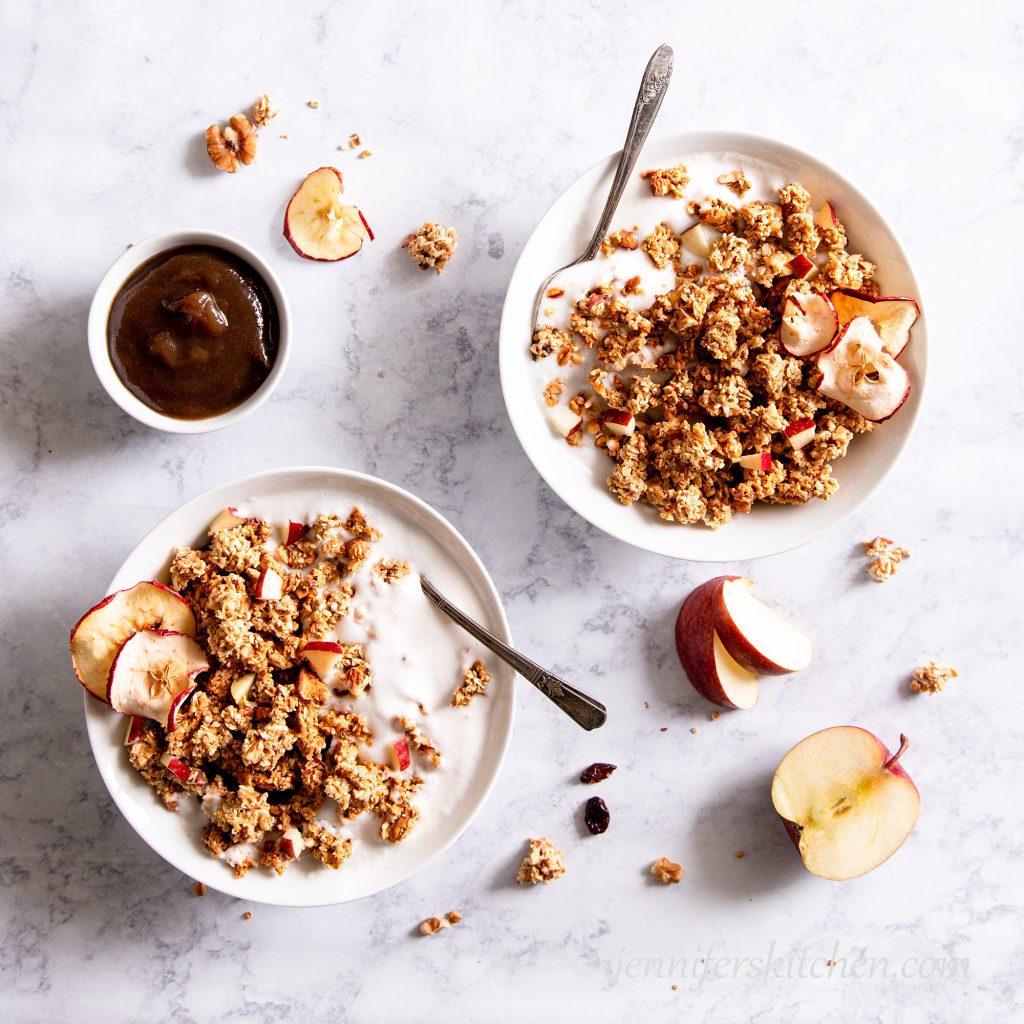
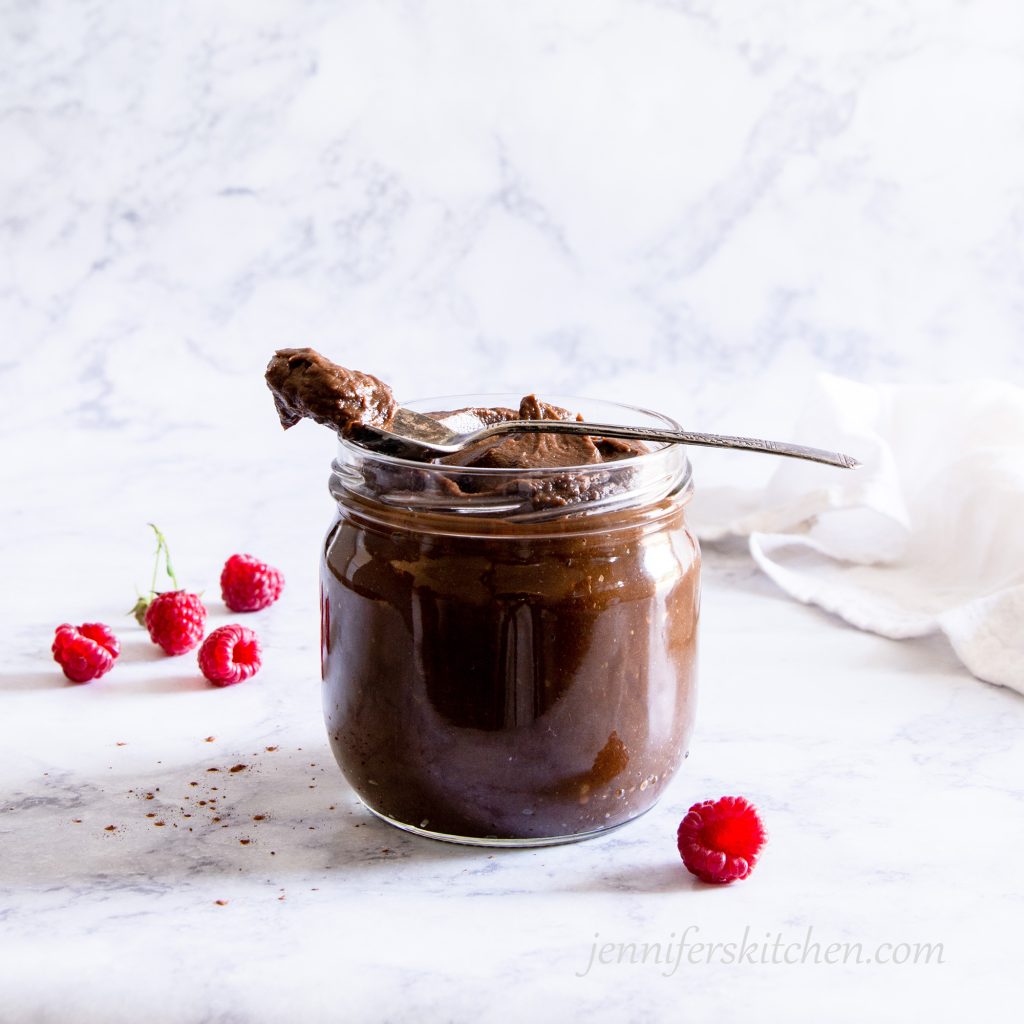

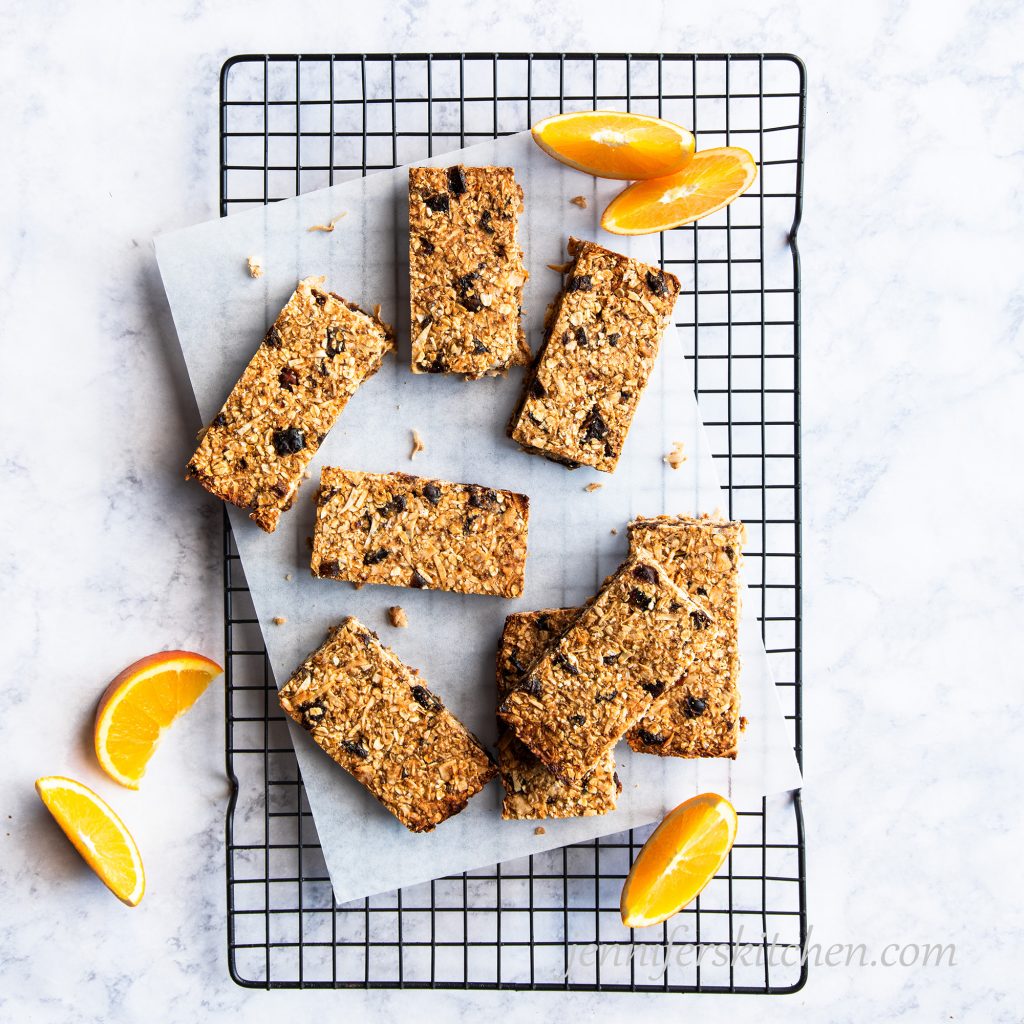

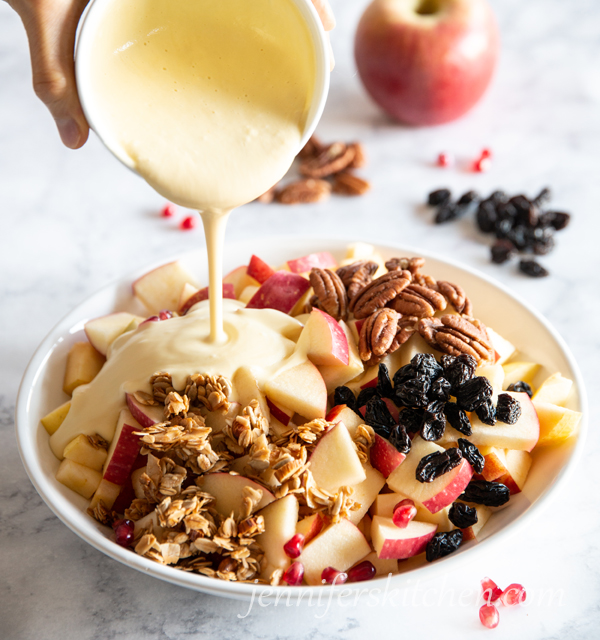
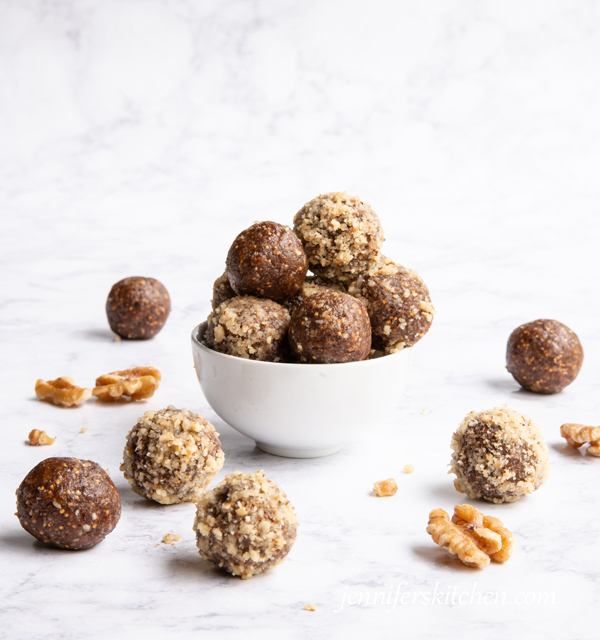


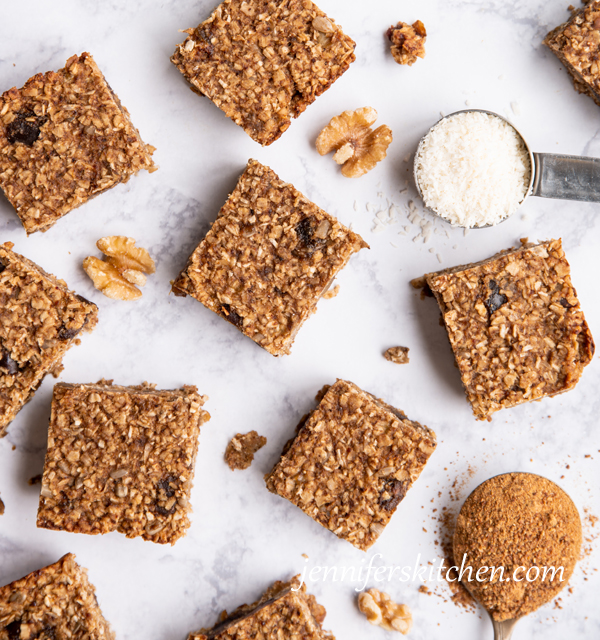

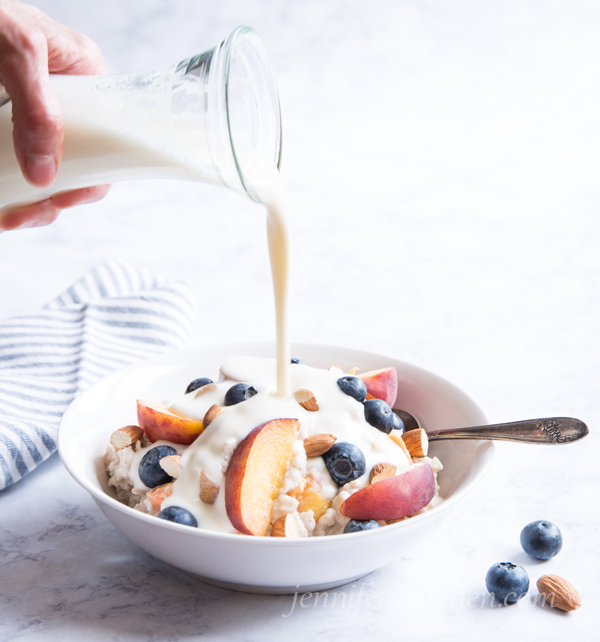


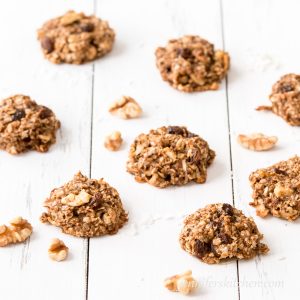


Please consider leaving a star rating and a comment. This helps others discover my recipes. Thank you! 🙂